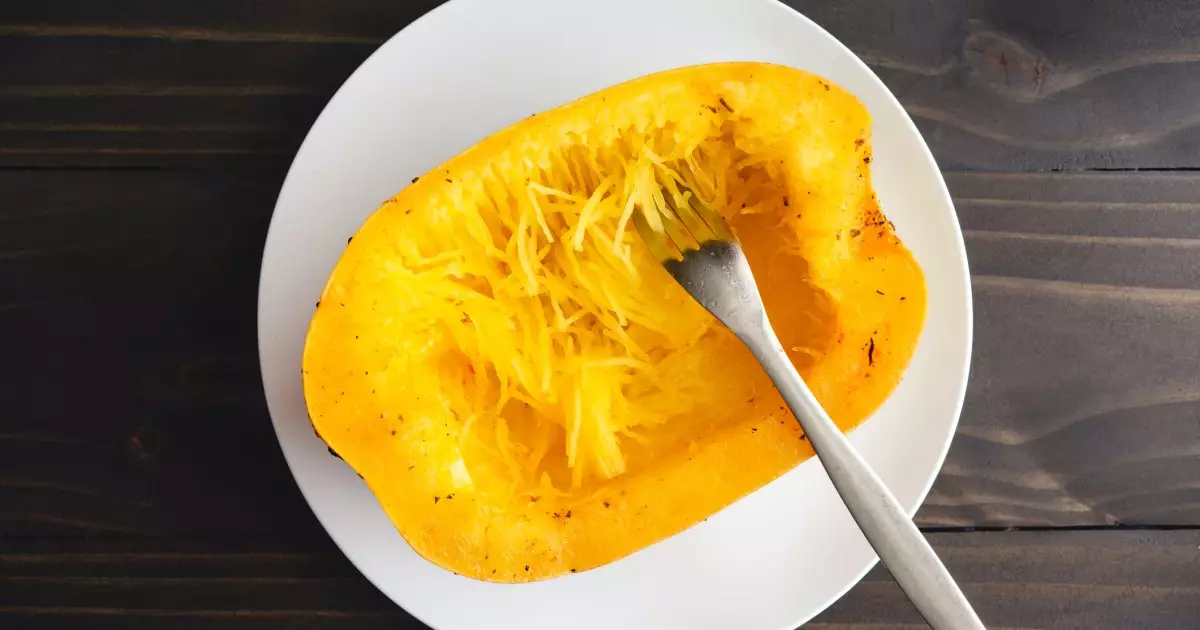Spaghetti squash has captured the culinary world with its unique texture and ability to mimic pasta, thus offering a low-carb alternative for health-conscious eaters. However, as pet owners, it’s crucial to question whether this delightful vegetable is suitable for our furry companions. The exciting answer is yes! When cooked properly, spaghetti squash can be a nutritious addition to your dog’s diet. But before you start serving up this gourmet treat, let’s explore the nutritional benefits, preparation guidelines, and important considerations to keep in mind.
Nutritional Goldmine for Dogs
First, let’s dive into the nutritional profile of cooked spaghetti squash. Most squash varieties are packed with vitamins and fiber, making them a fantastic choice for our four-legged friends. Specifically, spaghetti squash is rich in vitamin B6, which plays a crucial role in maintaining a healthy immune system, managing inflammation, and boosting energy metabolism. Even more exciting is the vegetable’s beta-carotene content, which provides a wealth of antioxidants that can contribute to healthy skin and eyes. In fact, one cup of spaghetti squash boasts around 90 micrograms of beta-carotene—significantly more than a sweet potato while providing fewer potential downsides.
Fiber is another standout component of spaghetti squash. With just over two grams of fiber per cup, it serves as a digestive aid that promotes regular bowel movements and cultivates a thriving gut microbiome. For dogs that occasionally face digestive hiccups or constipation, integrating fiber-rich foods like spaghetti squash can make a world of difference in their gut health.
Simple Preparation for Safety
Preparation is vital when serving spaghetti squash to your dog. The cooking process is relatively easy but requires some caution. Start by slicing the squash in half lengthwise and removing the seeds. Cooking the squash until it’s fork-tender is essential; raw squash can be tough and hard for dogs to digest. After cooking, use a fork to gently shred the squash into spaghetti-like strands, but remember to discard the skin, which is thick and could pose a choking hazard or cause intestinal blockage.
When you prepare the spaghetti squash for your pup, it’s crucial to avoid using toxic ingredients like garlic or onions, which are often included in Italian dishes. These substances can be harmful and even fatal to dogs when consumed in sufficient amounts. To keep your furry friend safe, set aside a portion of plain, cooked spaghetti squash before seasoning it for your meal. This way, your dog can enjoy the squishy goodness without any risk to their health.
Cautions and Considerations
While spaghetti squash is a generally safe option, it’s essential to pay attention to your dog’s unique dietary needs. Every dog is different; thus, it’s best to consult your veterinarian before introducing any new foods into their diet. Monitoring for any signs of allergies or digestive upset is also necessary when adding spaghetti squash to their meals for the first time.
Moreover, understanding the proper portion size is key. While spaghetti squash contains beneficial nutrients, it should only make up a small portion of your dog’s overall diet. Striking a balance between their regular food and this vegetable treat is crucial to maintaining their health and well-being.
A Culinary Adventure for Dogs
Incorporating spaghetti squash into your dog’s diet can be a fun and nutritious culinary adventure. By correctly preparing the squash and ensuring that it complements their regular meals, you are introducing them to healthy foods that can contribute to their energetic lifestyles. As pet owners, we bear the responsibility of providing a well-rounded diet. Spaghetti squash not only ticks the box for being delicious but also delivers solid health benefits that can enhance your dog’s quality of life. It’s worth considering as a staple in your pet’s culinary repertoire—deliciously delightful and profoundly nutritious!

